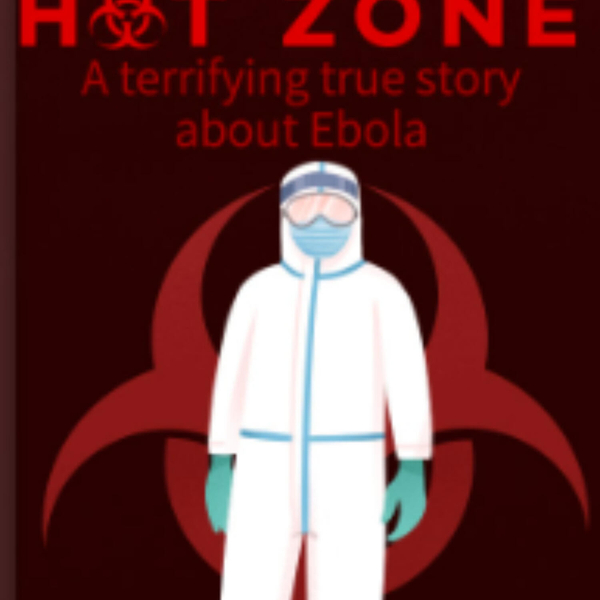
Virus Unleashed: The Chilling Truth of 'The Hot Zone' by Richard Preston
- 09:18
- January 11th 2025
"The Hot Zone" by Richard Preston focuses on the emergence and potential dangers of deadly viruses, particularly the Ebola virus and its impact on public health. The book explores the origins, characteristics, and transmission of these viruses, delving into their history and the scientific efforts to understand and contain them.
Preston takes readers through the real-life accounts of outbreaks and the efforts of scientists and health officials to control them. He vividly describes the environments where these viruses thrive, such as tropical rainforests, and examines how human activity, like deforestation and urbanization, can increase the risk of virus spillover from animals to humans.
The book blends scientific detail with gripping narrative, emphasizing the urgency and anxiety surrounding biological threats. Preston highlights both the biological aspects of the viruses and the psychological responses they evoke in people, making it a compelling exploration of humanity's fight against viral outbreaks and the implications for global health security.
Who is Charles Monet, and what role does his story play in the book's opening chapters?
Charles Monet is a key figure in Richard Preston's nonfiction book "The Hot Zone," which explores the emergence of the Ebola virus and its potential for outbreak. Monet is introduced in the book as an individual who became infected with the Ebola virus while in Africa, where he was exposed to the disease during an incident involving a fruit bat and a visit to a monkey facility.
His story serves as a crucial narrative device in the opening chapters of "The Hot Zone," illustrating the immediate and terrifying consequences of the Ebola virus. The account of his illness and the subsequent actions taken by health authorities highlights the deadly nature of the virus and the urgency of understanding and responding to emerging infectious diseases. Charles Monet’s experience sets the tone for the book, emphasizing themes of disease transmission, the fear of contagion, and the potential for global outbreaks, which are central to Preston's exploration of the biology and impact of Ebola.
What is the significance of the Marburg virus in the narrative, and how does it relate to Ebola?
The Marburg virus is significant in narratives discussing viral hemorrhagic fevers due to its high mortality rate and the severity of the disease it causes. Like the Ebola virus, Marburg is a member of the Filoviridae family and can lead to outbreaks that are catastrophic, both in terms of human health and societal impact.
In many narratives, the Marburg virus serves as a compelling example of the dangers posed by zoonotic diseases—illnesses that are transmitted from animals to humans. The virus is closely linked to its reservoirs, particularly fruit bats, which play a crucial role in its ecology and transmission dynamics. This relationship underscores themes of environmental health and the interconnectedness of ecosystems.
When discussing the Marburg virus in relation to Ebola, the similarities and differences between the two viruses are often highlighted. Both viruses cause similar symptoms and have high fatality rates, but they differ in their transmission methods, outbreak patterns, and geographical distributions. While Ebola outbreaks tend to be more extensive and prolonged due to human-to-human transmission, Marburg outbreaks are typically more localized and have a more acute onset.
In narratives focusing on public health, the comparison between Marburg and Ebola can also emphasize the importance of rapid response systems, surveillance, and global health preparedness. The fear and urgency surrounding outbreaks of both viruses reflect broader anxieties about pandemic threats, making them relevant in discussions about infectious disease control and management.
Read Book Briefs Podcast
Welcome to the Read Book Briefs Podcast, where we explore the world of literature in bite-sized episodes. If you're an avid reader or just looking for some book recommendations, this podcast is for you.
Each episode, we'll dive into a different book and give you a brief summary of the plot, characters, and themes. We'll also discuss our thoughts and opinions on the book, including what we loved and what we didn't.
But that's not all - we'll also interview authors, publishers, and other experts in the literary world to get their insights and perspectives. Whether you're a fan of fiction, non-fiction, or anything in between, there's something for everyone on the Read Book Briefs Podcast.
So grab a cup of tea, curl up with a good book, and join us every week as we explore the wonderful world of literature.